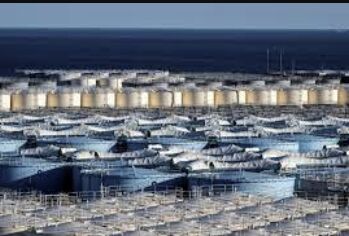Tension Rises as Fukushima's Controversial Wastewater Release Approaches Deadline
Treated wastewater release in Fukushima to end as planned, says TEPCO. China bans seafood imports from Japan, prompting increased aid to fishing sector and lawsuit by residents.
The first phase of releasing treated wastewater from the Fukushima nuclear plant in Japan, which has caused tension with China, will end on September 11 as planned, according to the Tokyo Electric Power Company (TEPCO), the plant's operator. TEPCO stated that the levels of radioactive tritium in seawater samples taken near the plant were within safe limits.
The release of the water, which began on August 24, aims to make space for the removal of radioactive fuel and debris from the damaged reactors. Japan maintains that the discharge is safe, a view supported by the United Nations atomic agency.
Residents file suit to halt #radioactive water release from #Fukushima plant
— Reinhard Uhrig (@reinharduhrig) September 9, 2023
Water release is "fresh misconduct" by the central government and TEPCO following the #nuclear accident - lawyer Hiroyuki Kawaihttps://t.co/BW8Sm8euPE pic.twitter.com/3i7QhGjnAn
However, China has banned all seafood imports from Japan, accusing it of treating the sea as a "sewer." In response to the ban, the Japanese government has increased its aid package for the fishing sector.
Additionally, fishermen and residents from Fukushima and other prefectures have filed a lawsuit to stop the ongoing release of treated wastewater, citing damage to livelihoods and a violation of the right to a peaceful life. The government and TEPCO argue that the water meets legal standards and is diluted before being released.
The International Atomic Energy Agency has reviewed the release plan and determined that its impact on the environment, marine life, and humans will be minimal.




